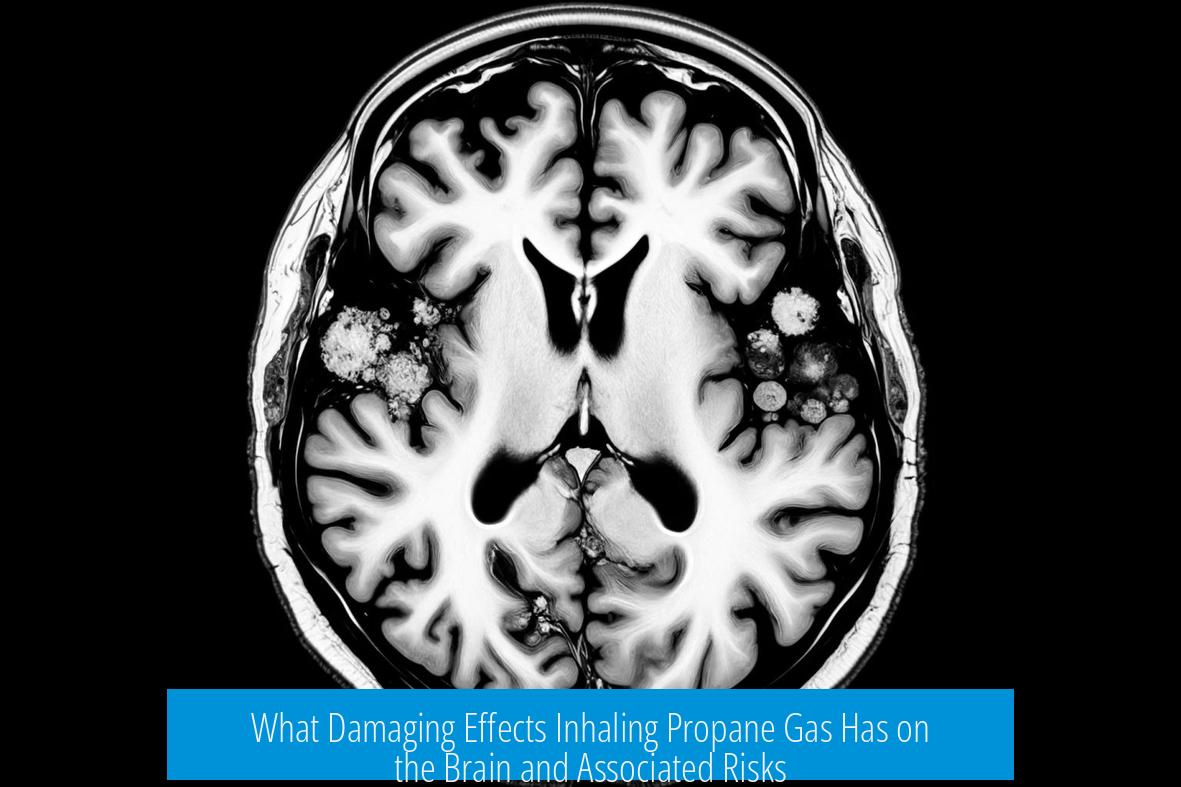What Damaging Effects Does Inhaling Propane Gas Have on the Brain?

Inhaling propane gas primarily damages the brain by displacing oxygen, which impairs oxygen delivery and causes hypoxia. This oxygen deficiency can lead to light-headedness, brain damage, and potentially organic brain syndrome. Additionally, repeated or heavy exposure risks respiratory complications like chemical pneumonitis.
Oxygen Displacement and Brain Effects
Propane is not a source of oxygen. When inhaled in high concentrations, it replaces the oxygen in the lungs. This replacement prevents proper gas exchange, reducing oxygen supply to the brain.
Low oxygen levels in the brain cause symptoms such as light-headedness or dizziness. Without enough oxygen, brain cells cannot function optimally. Even short-term oxygen deprivation can impair mental function.
Brain Damage from Huffing Propane
Intentional inhalation or “huffing” of propane can cause lasting brain damage. The lack of oxygen affects cellular respiration, leading to neuronal injury. Circulatory issues may also arise from this exposure, compounding the damage.
There is an association between propane huffing and organic brain syndrome, a condition marked by cognitive and behavioral impairments resulting from brain injury.
Uncertainties Regarding Long-Term Exposure
The effects of prolonged or repeated inhalation are less well understood. Some evidence indicates risks increase with chronic exposure, but data remains limited. Caution is advised since long-term consequences may include worsening neurological or respiratory problems.
Chemical Pneumonitis and Respiratory Risks
Chemical pneumonitis, an inflammation of lung tissue caused by inhaling irritant chemicals, poses a significant risk. While it’s uncertain if propane alone can induce this condition, repeated exposure could increase the chances.
Symptoms like coughing fits and vomiting after inhaling propane suggest large exposure to volatile organic compounds. These signs indicate respiratory distress, which can further affect oxygen delivery to the brain.
Summary of Key Points
- Propane inhalation reduces oxygen availability, causing brain hypoxia and light-headedness.
- Huffing propane can lead to brain damage and organic brain syndrome.
- The long-term neurological impact of repeated exposure is unclear but potentially serious.
- Chemical pneumonitis is a major respiratory risk linked to inhaling irritant gases.
- Symptoms of heavy exposure include coughing and vomiting, signaling respiratory distress.
What happens to the brain when propane gas replaces oxygen?
Propane displaces oxygen in the lungs, stopping proper gas exchange. This deprives the brain of oxygen, causing light-headedness and impaired brain function.
Can inhaling propane cause permanent brain damage?
Huffing propane can lead to brain damage and circulation problems. It is linked to organic brain syndrome, though effects of long-term exposure remain unclear.
Is chemical pneumonitis a risk from inhaling propane?
Chemical pneumonitis could be a serious concern. Though it’s uncertain if propane alone causes it, coughing and vomiting suggest exposure to harmful volatile chemicals.
What are signs of significant propane inhalation affecting the brain?
Symptoms like coughing fits, vomiting, and light-headedness indicate inhaling a large amount. These could signal brain oxygen deprivation or lung irritation.





Leave a Comment